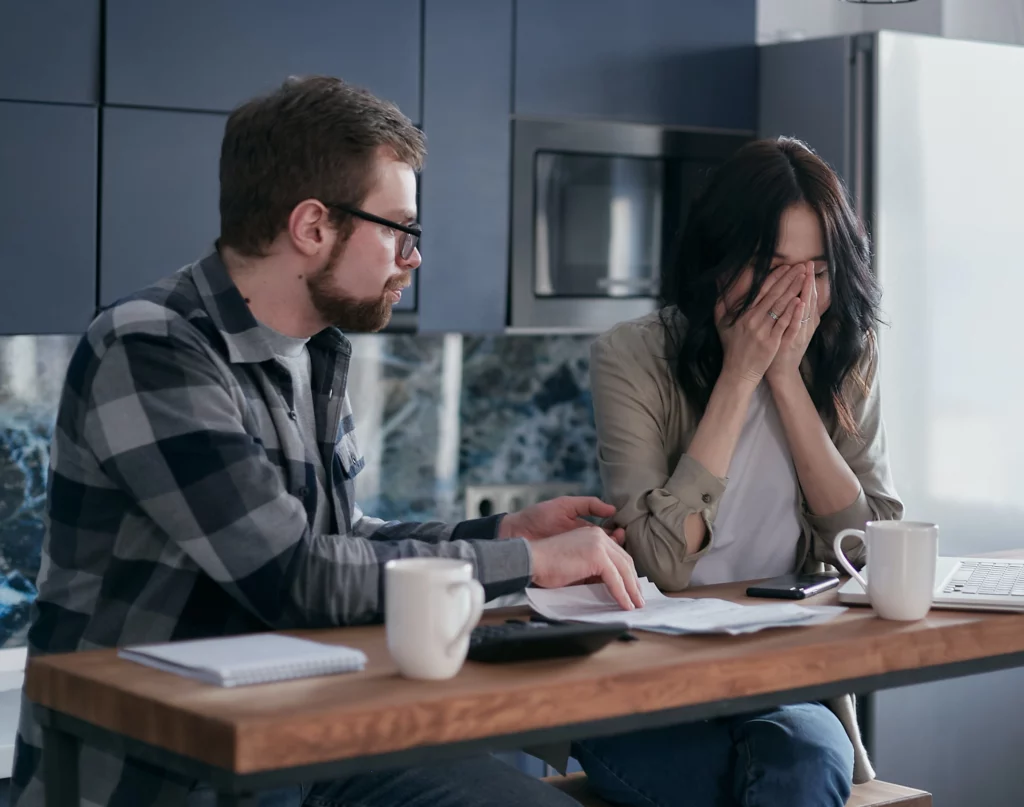
Inheriting a home can be a mix of bittersweet emotions. On one hand, you’ve been left with a valuable asset that could improve your financial situation. On the other hand, you’re grieving the loss of a loved one and suddenly facing new responsibilities and decisions. It’s very common to ask, “What are the tax consequences when selling an inherited property in South Carolina?”
The good news is that federal tax laws are generally designed not to punish heirs. In many cases, the tax consequences of selling an inherited house in South Carolina are less scary than people expect. Still, it’s important to understand the basics so you can plan ahead, avoid surprises, and decide whether keeping or selling the inherited home makes the most sense for you.
Tax Consequences When Selling an Inherited House in South Carolina
Step-Up in Basis for Inherited Property
To understand how you may be taxed when you inherit a home, it helps to understand the calculation of basis. “Basis” refers to the amount used to calculate capital gains or losses for tax purposes. For inherited property in South Carolina, the basis is usually “stepped up” to the home’s fair market value on the date of your loved one’s death.
For example, if your loved one bought the home 20 years ago for $25,000 but it was worth $100,000 when they passed away, the new basis for capital gains purposes is typically around $100,000. That means if you sell the inherited house for close to that amount, your capital gain may be minimal.
Capital Gains Tax on an Inherited House
When you sell an inherited house in South Carolina, the IRS treats the sale as a capital gain or loss for income tax purposes. Capital gains or losses are the profit or loss between your “basis” and your final sale price. This applies to property used for personal or investment purposes, including houses, land, and more.
Normally, you must own a property for more than a year to qualify for long-term capital gains tax rates. With inherited property, however, any gain or loss is generally treated as long-term regardless of how long you have personally owned the house. That can mean more favorable tax treatment compared to short-term capital gains.
Income Taxes When You Sell an Inherited Home
In addition to capital gains, you’ll need to consider how the sale of the inherited house is reported on your income taxes. The good news is that you do not usually owe federal estate taxes on the house itself as an individual heir—that’s handled at the estate level if it applies at all.
When you sell the inherited property, you’ll report the sale on your tax return and calculate your capital gain or loss by subtracting your adjusted basis from the final sale price (minus allowable selling costs). A local CPA or tax professional can help you understand how this affects your overall income tax situation.
Managing an inherited home can be stressful—especially when you’re trying to keep up with property taxes, insurance, utilities, and maintenance while also sorting out probate and taxes. In South Carolina, you’ll typically need to go through the probate process before selling, unless the property is held in a trust or qualifies for a simplified procedure. The probate court authorizes the sale, and if there are multiple heirs, everyone should agree on how and when to sell before you move forward.
Once the sale is approved, you can decide whether to list the home with an agent, make repairs, and show the property—or choose a simpler route and sell the inherited house as-is to a local cash home buyer.
If you’re looking for a smooth, legitimate sale without the headaches of repairs, showings, and long timelines, you can reach out to Table Rock Homebuyers at 864-272-5400. As local real estate consultants, we understand the South Carolina market and can walk you through your options if you’re worried about the tax consequences of selling an inherited house in South Carolina.
Selling an inherited house can be a huge relief—especially when you choose a path that’s simple and fast. If you’d like guidance on how to sell your home in South Carolina and compare different options, request a fast, fair cash offer for your South Carolina inherited house. We’re here to help you move forward on your timeline.

Frequently Asked Questions
How is the tax basis calculated when I inherit a house in South Carolina?
For most inherited houses in South Carolina, the tax basis is “stepped up” to the fair market value on the date of your loved one’s death. That means if they bought the property years ago for a low price but it was worth much more when they passed, your basis is usually the higher value at the time of death, not the original purchase price.
How does capital gains tax apply when selling an inherited house in South Carolina?
When you sell an inherited house in South Carolina, any profit (the sale price minus your adjusted basis and selling costs) is treated as a capital gain. The IRS generally treats gains on inherited property as long-term, even if you’ve owned the house for less than a year, which can qualify you for more favorable long-term capital gains tax rates.
Do I owe income taxes when I sell an inherited house?
Yes. You’ll report the sale on your tax return and calculate your capital gain or loss. You don’t typically owe separate “estate tax” on the inherited home itself as an individual heir, but any taxable gain from the sale may increase your income for the year. A tax professional can help you understand how the sale affects your specific situation.
Do I need to go through probate before selling an inherited house in South Carolina?
In many cases, yes. Probate is the court process that gives someone the legal authority to sell the property and distribute proceeds to heirs. The exact steps depend on how the home was titled and the size of the estate. Before listing or selling the property, it’s wise to speak with a probate attorney to confirm what’s required in your situation.
How can Table Rock Homebuyers help me sell an inherited house in South Carolina?
Table Rock Homebuyers is a local real estate consultant and cash home buyer that helps people sell inherited houses across South Carolina. We buy houses as-is, work with your probate timeline, and handle the paperwork so you can sell quickly without repairs, showings, or agent commissions. You can call us at 864-272-5400 or request a cash offer online to see if a direct sale is a good fit for you.

Related Articles
-
How to Avoid Probate Court in South Carolina: 5 Smart Strategies
It can be very beneficial for heirs to avoid the probate process in South Carolina. Between the fees, costs, and stress, the process can be daunting and overwhelming. If you…
-
5 Things to Do Immediately After Inheriting a House in South Carolina
Inheriting a house in Spartanburg comes with its own set of challenges and responsibilities. By following these essential steps, you can navigate the process more effectively and ensure a smooth…
-
How to Sell an Inherited House in South Carolina With Multiple Heirs
Selling an inherited house in South Carolina can be both emotionally and legally challenging, especially when many heirs are involved. Whether it’s due to the passing of a loved one…
-
5 Tips for People Who Have Inherited Real Estate in South Carolina
Inheriting real estate in South Carolina is a complex and emotionally challenging experience. With the tips we’ve shared, you can make informed decisions that will help you manage the property…
-
Selling an Inherited House in South Carolina: Simple Guide
Selling a home is often a stressful and time-consuming process. There are many things to do – from home repairs and staging to home inspections and appraisals. Additionally, if you’re…
-
Tax Consequences of Selling an Inherited House in South Carolina
Selling an inherited house can be a huge relief, and selling to an investor makes the process simple and fast. the good news is that the tax laws are designed…
-
4 Hidden Costs You May Face When Inheriting Property in South Carolina
Inheriting a house may appear as a blessing in certain situations, but it’s crucial to be aware of the potential hidden expenses that can come with it. If you inherited…
-
How to Price Your Inherited Home in South Carolina
Selling an inherited property can be a mixed experience. While it is a cherished gift from a departed loved one, it can also become a financial burden. Selling it allows…
-
How to Handle an Inherited Property in South Carolina With No Will
Inheriting real estate in South Carolina can be a complicated process, especially if there isn’t a will in place. But by following these steps and getting professional help when needed,…
-
5 Tips for Siblings Dealing With Inherited Property in South Carolina
Have you inherited property in South Carolina? Sadly, without proper forethought, you may suddenly face life without your parents, who have left their property to all of their children without…

